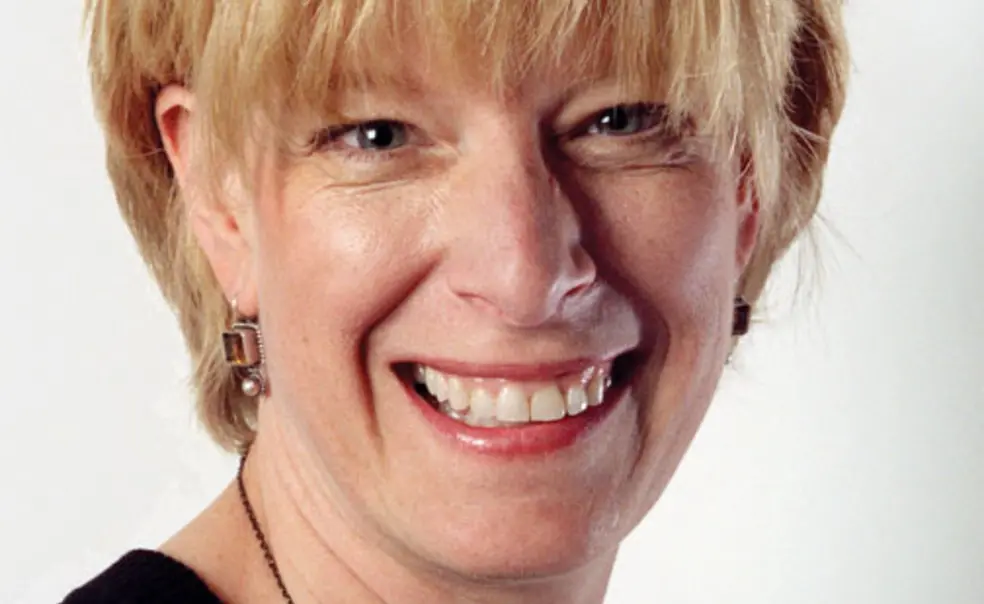A moment with ... Lisa Belkin '82
For more than a decade, Lisa Belkin ’82 has written about work and family life for The New York Times. The mother of two sons, 18 and 14, she has written three books, including Life’s Work: Confessions of an Unbalanced Life (2002), and recently began blogging on the Times’ Web site about parenting (http:// parenting.blogs.nytimes.com/author/lisa-belkin), commenting on topics ranging from teaching children manners, to coping with college rejection letters, to domestic abuse and school shootings. As Mother’s Day approached, Belkin spoke with PAW.
How do your children feel when you write about them?
My kids have veto power. They didn’t when they were younger, but now that they’re older and I’m doing a blog, I have texted things to my children at school and asked, “Can I write this?” They don’t want to feel that Mom’s out there writing behind their backs. I’ve always said that no article is worth a relationship, but that means that a lot of the good stuff doesn’t get in. My rule is that I will not write embarrassing things in real time. I can take old stories that are embarrassing, and my kids are OK with that. I have the whole range from ages 1 to 18 to draw on.
Where else do you get ideas?
Many of them come from readers. My secret weapon is ParentNet — Princeton’s alumni discussion group [on TigerNet]. I don’t think I would have survived my own parenting years without the wisdom and advice of those folks. Half the time it is really ParentNet writing the column — I just channel what they have taught me.
Is it harder to parent younger or older children?
For me, parenting small children was much more physically draining, and parenting older children is much more emotionally draining. When they’re young, you’re running nonstop. It’s much more about being in sync with where they are emotionally now.
How much difference do we make as parents?
I think we make a ton of difference, but not nearly as much as we think we do. Sometimes I’d like to think we didn’t make a difference, because it’s a huge responsibility. But we don’t make all the difference. My mother used to say to me, “I can’t take credit for all your accomplishments, but I won’t take blame for all your shortcomings.”
Do parents worry too much?
We agonize. That’s one thing I wish I had done differently: I wish I hadn’t looked at every situation trying to find the one right answer, the teaching moment. I do think we worry too much. The world is not as scary and awful a place as we sometimes think it is. It’s more complicated growing up today, but my mother was quite sure that the world was going to end during World War II. I was quite sure the world was going to end because the Russians were going to blow it up. Our children are sure the world is going to end because of Islamic terrorism. Each generation thinks it has it the worst.
Were there rough patches in raising your children?
The middle teenage years are everything they’re cracked up to be. Any household with a teenager in it has either a lot of yelling or a lot of really long silences. It’s hard to see your little sweet darling turn into a pod person, but they have to do it, don’t they? It is part of separating from their parents. There were nights when I recited that to myself.
Do younger women view the work-family balance differently than women of your generation did?
This generation of women is far more determined to have a life than we were. We sacrificed more for work, and they’re not willing to do that. They’re also more determined to have equality in their relationships. I’m not sure what effect the economy is going to have on that determination. I’m not sure what the passage of time does to that determination, either. But I know that they are talking about how they are going to balance life and work, and we weren’t.
Is it possible for husbands and wives to balance contributions around the house?
Things are better than they were a generation ago. I think men look at their fathers and are very proud of themselves because they are so much more involved with their families than their fathers were. Women look at their mothers and feel that they’re falling short because they are not as hands-on at mothering as their own mothers were, but they’re also not as gung-ho at work as their fathers were, so they’re failing in every direction. I think men deserve credit for what they are doing, but probably not as much credit as a lot of men like to give themselves.
— Interview conducted and condensed by Mark F. Bernstein ’83













No responses yet